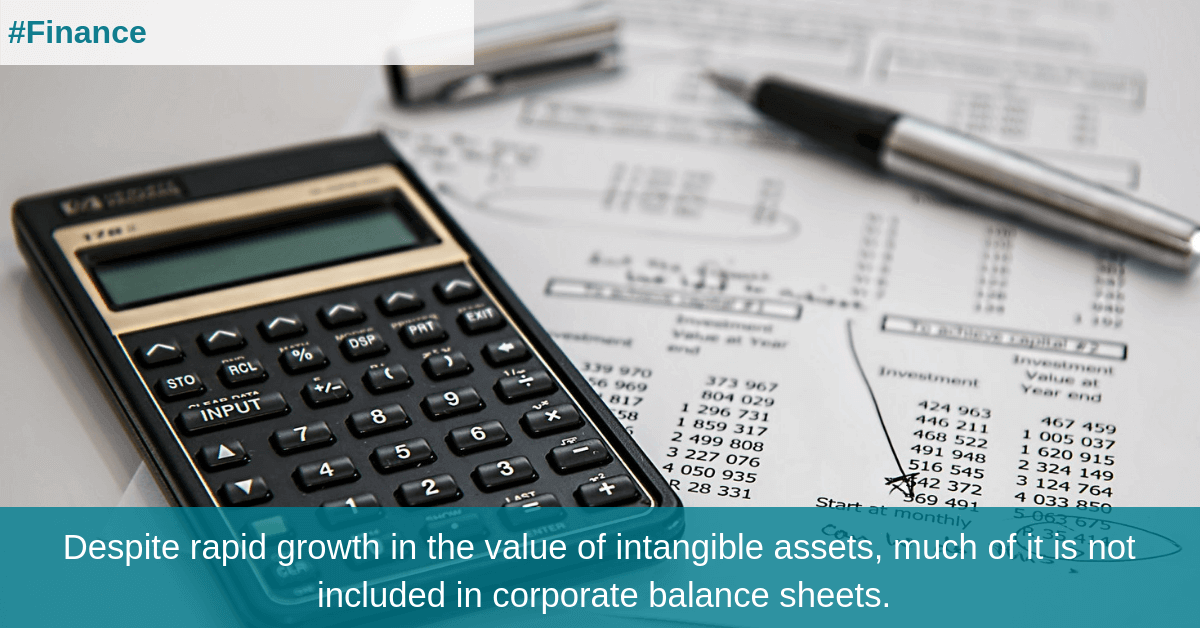In addition to being difficult to manage, intangible assets have traditionally been a challenge in terms of communicating their value. Financial reporting has not evolved fast enough to adequately capture the true value of the organisation’s intangible assets and to address the needs of business decision makers.
Recent TRG blog posts
Communicating the Value of Intangible Assets
Posted by Rick Yvanovich on Tue, Sep 11, 2018
Blog Topics: CFOs, Financial Accounting Management Software
What does Unified Ledger Accounting Mean to Accountants?
Posted by Rick Yvanovich on Sat, Sep 8, 2018
Ledgers are the backbone of any accounting system. They are the central repository for all accounting data of an organisation and are pivotal to financial reporting. An organisation’s financial statements are derived from ledgers.
Blog Topics: CFOs, Financial Accounting Management Software
Global Management Accounting Principles Explained in 800 Words
Posted by Rick Yvanovich on Tue, Sep 4, 2018
Businesses, no matter how big or small, all want to make high quality, impactful business decisions. In order to be able to do so, the business must be equipped with accurate, fact-based and timely data. This is where management accounting comes in.
Blog Topics: CFOs, Financial Accounting Management Software
Why Management Accounting is Essential for Sustainable Success
Posted by Thai Pham on Thu, Aug 16, 2018
In today’s ‘VUCA’ world—characterised by volatility, uncertainty, complexity and ambiguity— it is becoming harder and harder to get right. As discontinuity becomes the norm and the most established business models come under threat, business leaders may need to adapt their models or develop new ones. How can organisations achieve sustainable success in a constantly changing environment with management accounting?
Read more: Why does your business need an accounting software?
Blog Topics: CFOs, Financial Accounting Management Software
Revamping Corporate Financial Planning: 8 Points to Remember
Posted by Thai Pham on Sun, Aug 12, 2018
As the world is heading towards an uncertain future, businesses can expect some unexpected events along the way. Therefore, agility needs to be embedded in every business process, including corporate financial planning.
Blog Topics: CFOs, Financial consolidation, planning and reporting, Enterprise Performance Management (EPM), Financial Accounting Management Software
What is Investment-based Budgeting and Why It Matters
Posted by Thai Pham on Fri, Aug 10, 2018
Shortcomings associated with the traditional budgeting approach can undermine the true value of the process. Budgeting should be less cost-driven and more investment-based, i.e. all forecasted costs of a department should be attached to deliverables—the products and services that department delivers to other departments or to the clients. Doing so will make budget decisions investment decisions.
Blog Topics: CFOs, Financial Accounting Management Software
How Will Blockchain Redefine the CFO’s Role?
Posted by Thai Pham on Tue, Jul 31, 2018
Known as the technology behind Bitcoin, blockchain can be applied in a wide array of applications for business, not just limited to only the cryptocurrency arena. Even though still in its infancy, blockchain technology is believed to redefine the finance function.
Blog Topics: CFOs, Technology trends
How to Implement a Continuous Governance, Risk, and Compliance Program
Posted by Thai Pham on Mon, Jul 30, 2018
Companies spend millions of dollars developing and documenting their processes, policies, and controls, yet have little visibility into whether they’re being followed. With thousands of transactions to screen and systems being accessed by hundreds or thousands of employees whose statuses change daily, the process of monitoring for breaches—either accidental or intentional—can be both expensive and overwhelming. A strategic and automated approach is, therefore, essential.
Blog Topics: CFOs, Financial Accounting Management Software
Redefining Finance: Four priorities for the modern CFOs
Posted by Thai Pham on Fri, Jul 27, 2018
In a more digitalised world, the finance leaders are expected to be forward-looking, evolved from their traditional role to provide data-driven analysis and insights. However, in reality, many CFOs still find it is difficult to keep up with the development, and therefore, is unable to deliver deep insights to support the risk management to spot new opportunities, weather economic shocks and volatility.
In July, Workday released its global “Finance Redefined” study, conducted by Longitude, which surveyed more than 670 finance leaders across the Americas, Europe, Asia Pacific, and South Africa to get their vision and strategy on the future of the finance function and finance leadership.
Blog Topics: CFOs, Financial Accounting Management Software
Detecting and Preventing Duplicate Invoice Payments
Posted by Thai Pham on Mon, Jul 2, 2018
Duplicate invoice payments occur far more frequently than most organisations realise. On average, approximately 0.1% to 0.05% of invoices paid are typically duplicate payments—which for a medium-size organisation with annual costs of $100 million over a three year period, could represent a loss of $300,000.
Blog Topics: CFOs, Financial Accounting Management Software
 English
English  Vietnamese
Vietnamese 










